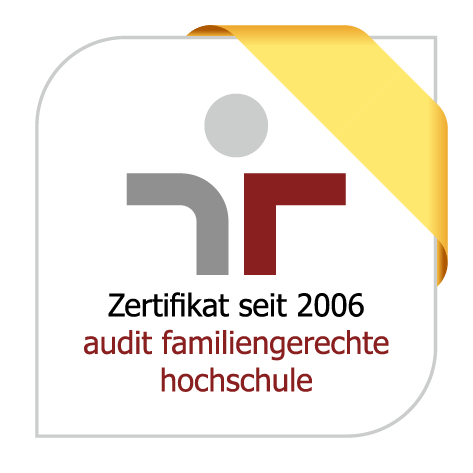
The Center for InterAmerican Studies (CIAS) has the following job opening: 
Research Position (m/f/d) (Postdoc)
ID: Wiss25439
- starting: 01.01.2026
- fulltime
- salary according to remuneration level E13 TV-L
- fixed-term
We are looking for a post doctoral researcher with an expertise in Maritime or Environmental and Climate History to work in the interdisciplinary project "Deciphering old ship Records to Understand the Maritime Structure of the Atlantic Intertropical Convergence Zone" (DOLDRUMS), a collaboration between Bielefeld University and the Max-Planck-Institute for Meteorology, Hamburg funded by the Volkswagen foundation. We offer an excellent opportunity to pursue postdoctoral research, which, in Bielefeld, is embedded in the context of the vibrant Center for Inter American Studies (CIAS) and its research focus in Environmental and Climate History of the Americas.
Approximately one-third of global precipitation is concentrated within the Intertropical Convergence Zone (ITCZ), a narrow band of rain located in the tropics. Anticipated shifts in the ITCZ’s location, width, and intensity due to climate change may significantly affect water resources for hundreds of millions of individuals. Making accurate projections necessitates a robust understanding of historical variations; however, available data remains limited. The DOLDRUMS project addresses this gap by integrating historical and meteorological research to determine if patterns from the past can be discerned through the analysis of historical ship logs. Unlike natural archives, surface wind records over oceans are largely absent, prompting DOLDRUMS to seek evidence in human records—specifically, logbooks from sailing vessels involved in the transatlantic slave trade, which forcibly relocated 12.5 million humans from Africa to the Americas and the Caribbean between the 16th and 19th centuries. The study concentrates on the period between 1750 and approximately 1820, with a specific focus on the years 1783/ 84 and will involve the reconstruction of ship routes from log book data as well as qualitative research on the conditions on slave ships of the Transatlantic Slave Trade.
Approximately one-third of global precipitation is concentrated within the Intertropical Convergence Zone (ITCZ), a narrow band of rain located in the tropics. Anticipated shifts in the ITCZ’s location, width, and intensity due to climate change may significantly affect water resources for hundreds of millions of individuals. Making accurate projections necessitates a robust understanding of historical variations; however, available data remains limited. The DOLDRUMS project addresses this gap by integrating historical and meteorological research to determine if patterns from the past can be discerned through the analysis of historical ship logs. Unlike natural archives, surface wind records over oceans are largely absent, prompting DOLDRUMS to seek evidence in human records—specifically, logbooks from sailing vessels involved in the transatlantic slave trade, which forcibly relocated 12.5 million humans from Africa to the Americas and the Caribbean between the 16th and 19th centuries. The study concentrates on the period between 1750 and approximately 1820, with a specific focus on the years 1783/ 84 and will involve the reconstruction of ship routes from log book data as well as qualitative research on the conditions on slave ships of the Transatlantic Slave Trade.
Your Tasks
Research activities (95%)
- collecting climate and position data from slave ship logs
- researching the social and material living conditions of enslaved people on board
- writing publications that contribute to the project's research program
- participating in academic self-administration tasks
We offer
- salary according to remuneration level E13 TV-L
- fixed-term for 4 years (§ 2 (1) sentence 2 of the WissZeitVG; in accordance with the provisions of the WissZeitVG and the Agreement on Satisfactory Conditions of Employment, the length of contract may differ in individual cases.)
- fulltime
- internal and external training opportunities
- variety of health, consulting and prevention services
- reconcilability of family and work
- flexible working hours
- good public transport connection
- open and pleasant working atmosphere
Your Profile
We expect
- completed academic degree (e. g. Master's degree or equivalent) in history or geography
- PhD in the fields of Maritime or Environmental and Climate History
- good working practice of reading historical manuscripts of the 18th and 19th century
- excellent spoken and written English
- independent, self-reliant and committed working style
- strong organizational and coordination skills
- cooperative and team-oriented way of working
Preferred experience and skills
- good written and spoken knowledge of French or Spanish
- experience with reading historical ship logs
Application Procedure
We are looking forward to receiving your application. To apply, please preferably use our online form via the application button below.
application deadline: 20.11.2025
Contact
Silke Berger
+49 521 106-3064
silke.berger@uni-bielefeld.de
Postal Address
Universität Bielefeld
Department of History
Prof. Dr. Eleonora Rohland
Post Box 10 01 31
33501 Bielefeld
Silke Berger
+49 521 106-3064
silke.berger@uni-bielefeld.de
Postal Address
Universität Bielefeld
Department of History
Prof. Dr. Eleonora Rohland
Post Box 10 01 31
33501 Bielefeld


